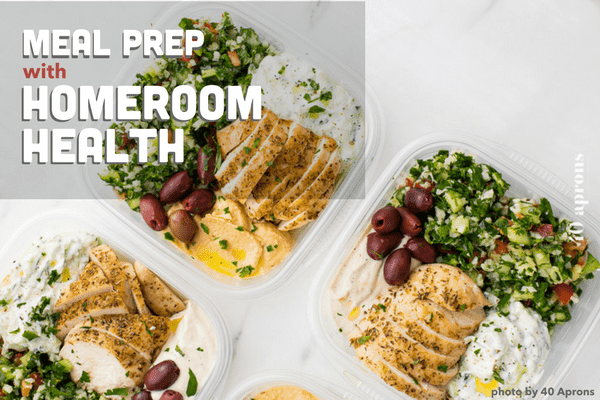What’s for Dinner?
Meal planning and prepping should go hand in hand. Meal planning answers the question “What’s for dinner?” while meal prepping is putting the plan into action.
How to get started
- Pick a convenient day to sit down and plan out your meals for the week. Think about what activities you have scheduled during the week and factor that into your meal planning. If any of your planned meals require a recipe, have this readily available.
- Make a grocery list and shop for the ingredients.
- Once you bring your groceries home, prep as many ingredients as you can (i.e. wash, peel, cut vegetables needed in your meals for the week). Prepping vegetables can be time-consuming, but it’s actually faster to do it all at once rather than spreading it out over several days.
Some Things I’ve Learned
A good place to start meal planning is to look in your pantry, fridge or freezer. See if there’s anything you would like to use up or already have on hand to make meals.
Big batch cooking is where it’s at. I love to batch cook whenever I can. If you are planning to have a grain during one of your meals (brown rice, quinoa, barley) double the amount of grains you need and save the rest for another meal. Grains freeze wonderfully. TIP: To freeze cooked grains, spread them out on a sheet pan in one single layer and then pop the sheet pan in the freezer for a couple of hours. Then break apart and store in freezer bags.
Create a few theme nights each week like Meatless Monday, Taco Tuesday (try Chef Dan’s Spring Break Taco Bar inspiration below) or Grain Bowl Night. Having some boundaries to your meal planning can make you feel less overwhelmed. You can still have a variety of options with each themed night.
Don’t feel like you have to cook a new recipe every night. I build most of my meals on what I’ve already cooked and sometimes by varying the vegetable or spice, the dish seems new. Don’t shy away from new recipes, though. I try to test out one new dish a week on my family. It’s a great way to continue to expand your recipe repertoire.
Be realistic. If you are new to cooking, don’t set the expectation of cooking every single night. It’s ambitious but not sustainable. Ease into it by planning to cook two or three nights a week. Give yourself time to figure out what works best for you and know that you can always revise your plans.
Photo by 40 Aprons



